Animals sweat through glands located all over their bodies. Sweating helps regulate body temperature and remove toxins from the body.
which animals sweat ?
Here are the some animals that sweat :
- Horses
- Monkey
- Apes
- Hippos
- Dogs
- Cats
- Humans
- Chimps
- Donkeys
- Zebras
- Gorillas
Table of Contents
Animals That Sweat :
Horses
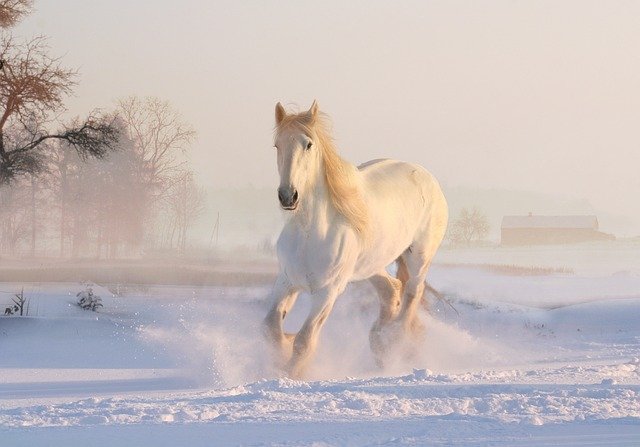
Do horses sweat? I’ve always wondered why they don’t sweat. They seem to get hot just like us humans.
Yes, horses sweat. They also urinate and defecate, which means they do not smell like a horse. However, horses do not sweat through their skin. Instead, they sweat through their hair and mane. This is why horses often look clean when they are dirty.
Horses sweat because they have sweat glands under their skin. These glands produce a liquid called perspiration. The sweat then evaporates from the horse’s body.
What does it mean when a horse sweats a lot? A horse sweats a lot when they are nervous, excited, or stressed out. Horses sweat through their skin and hair, which helps them cool off. If a horse sweats too much, it can cause their coat to become dirty and matted.
Monkeys
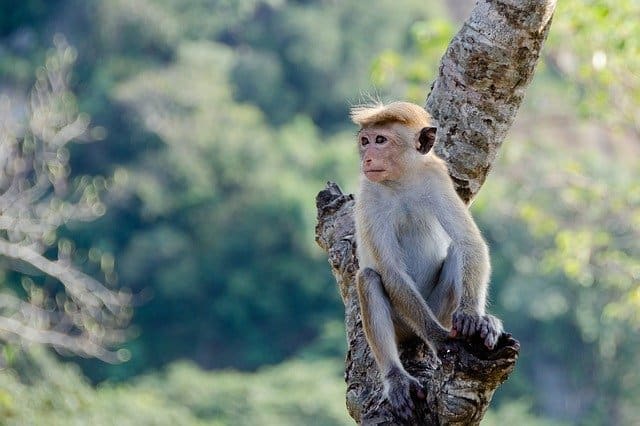
Do monkey sweat? The answer is yes! Monkeys sweat just like humans. They lose water through their skin by sweating, which helps them regulate their body temperature. This process also helps keep parasites at bay.
Monkey sweat is a natural substance produced by our bodies when we exercise. It contains amino acids which help us recover from strenuous workouts. Monkeys also produce sweat to cool themselves off during hot days.
A monkey sweats a lot when it is nervous or excited. When a monkey feels nervous or excited, its body temperature increases, which causes it to sweat. Sweating helps cool down the body and keep us comfortable.
Apes
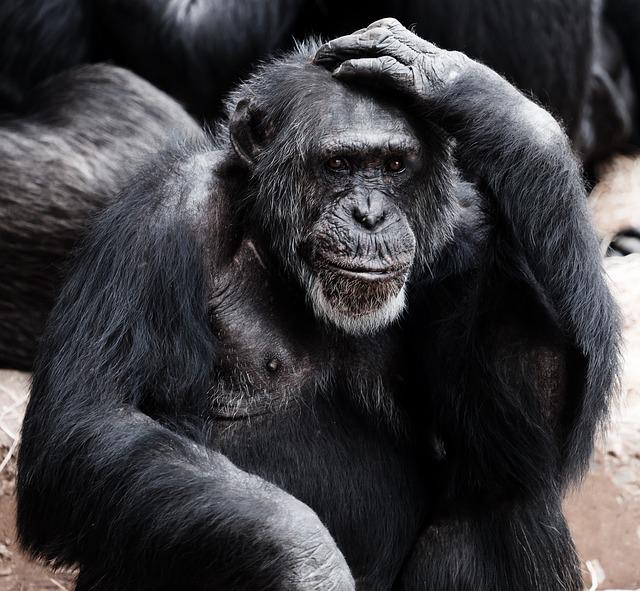
Yes, they do sweat! Apes sweat for two reasons to cool off and to keep themselves clean. They also use their hands to groom themselves.
Apes sweat because they are hot. They also sweat to cool themselves down. When they are cold, they rub their bodies against trees, rocks, or other animals. This helps them keep warm.
Apes don’t sweat much because their bodies are covered in hair. Scientists wondered why apes didn’t sweat as much as humans. It turns out that apes sweat less than humans because they live in hotter climates. Their fur keeps them warm enough to survive without sweating too much.
Hippos
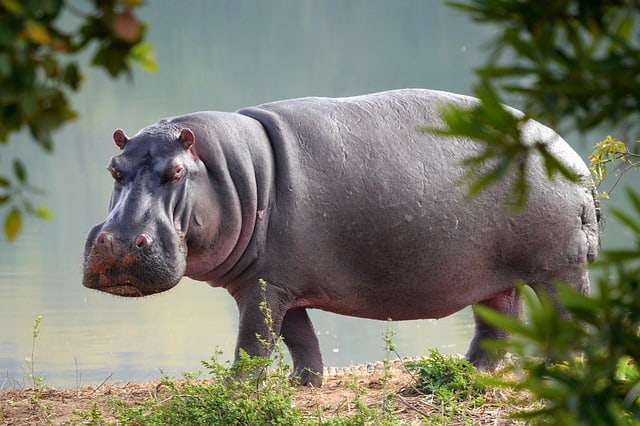
A hippopotamus sweats a lot because they live in hot climates. They sweat to cool off, and also to keep themselves clean. They sweat through their skin, which helps them cool off when they’re hot. They also use their tongues to clean themselves, and lick their fur to keep it dry.
Hippos are herbivores, which means they eat plants. Their diet consists mainly of grasses, leaves, roots, fruits, and seeds.
The water temperature of hippo sweat ranges from 100°F (38°C) to 110°F (43°C), depending on the season. This makes hippo sweat extremely hot and humid. In fact, hippo sweat has been found to contain high levels of bacteria, fungi, and viruses.
Hippos are known to have a very thick layer of fat under their skin called subcutaneous adipose tissue. When they move, this fat moves with them. As a result, hippos tend to get overheated easily.
Dogs
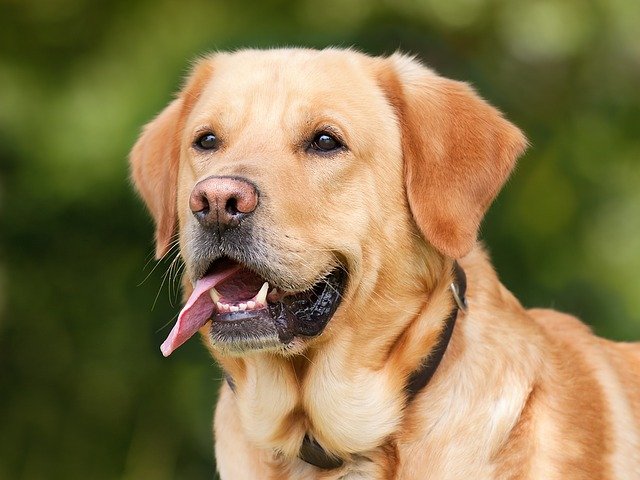
When a dog sweats a lot, it means he has too much energy. If a dog sweats a lot for no apparent reason, then he may be sick. A healthy dog should only sweat when he is exercising.
Dogs sweat for two reasons firstly, they need to cool down when they are hot, and secondly, they need to regulate their body temperature. If your dog sweats excessively, he may be having trouble regulating his body temperature.
This could mean that your dog has a fever, which should be treated immediately.
Dogs sweat through their paws, which helps them cool off when they are hot. They also sweat through their tongues, which helps them keep their mouths moist during hot days.
Cats

Yes, they do! Cats sweat through their paws and under their tails. They also use their tongues to cool themselves off.
Cats do not sweat through their fur, they just perspire. This is why cats often look wet when they are hot. They also have a layer of fat under their skin which helps them regulate body temperature.
When a cat sweats a lot, it means that it has been running around too much. Cats sweat through their paws, which helps them cool down. If they don’t run around enough, they may develop paw infections.
Cats pant to regulate their internal temperature. This means that they pant when it gets too hot or cold outside. The heat from their breath evaporates moisture from their fur, cooling them down.
Human

We all know that sweating is a sign of stress or exertion. But did you know that our bodies also produce sweat? And does it really matter?
Yes, we do. Sweating helps cool us down when we are hot, and also helps us feel better about ourselves. When we are sweating, our body temperature rises and our heart rate increases. This makes us feel happier and calmer.
When a human sweats a lot, It feels uncomfortable due to heat, and tries to cool down. This is why we sweat during summer. When you sweat a lot, it means that you are dehydrated. Dehydration occurs when your body loses too much water through sweat.
Sweating is a natural bodily function that helps regulate body temperature. The amount of sweat produced depends on several factors, such as age, gender, environment, and exercise level.
Sweat contains a number of substances that play important roles in maintaining health. For example, it helps flush out toxins from the body, regulates blood pressure, and even plays a role in sexual arousal.
Donkeys
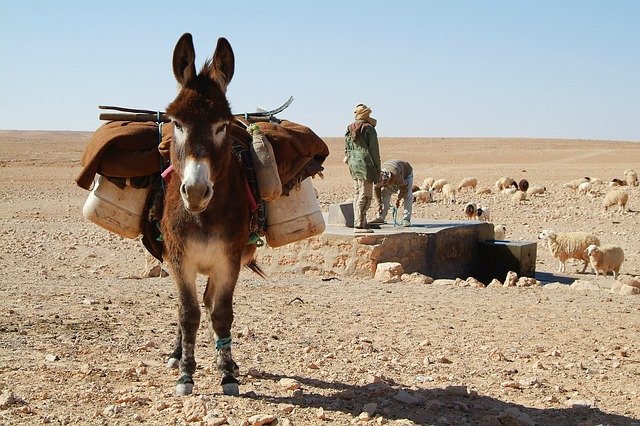
Yes, donkeys sweat too! They also urinate a lot, which makes them smell like wet dogs. Donkeys are actually one of the only animals that can’t sweat through their skin, so they must rely on evaporation from their fur.
Donkey sweat smells like rotten eggs! But don’t worry, they are harmless. Donkey sweat comes from the glands located under the tail of the donkey.
A donkey sweats a lot because he has a high metabolism rate. He needs to produce a lot of energy to keep him moving around.
Zebras
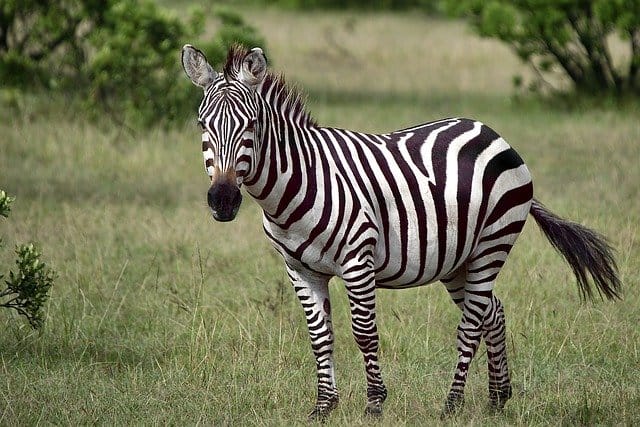
Zebras sweat because they live in hot climates. They also sweat to cool off or to attract mates. Instead, their bodies produce a special oil called sebum that helps them regulate body temperature.
A zebra sweats a lot when it’s hot outside, because they have sweat glands like humans do. They sweat because they live in hot climates.
Zebras are mammals native to Africa. They are herbivores that eat grass and other plants. They spend much of their time grazing, moving slowly through the grasslands. When they stop to rest, they often roll onto their backs and raise their legs into a standing position. This allows them to shed excess heat through their skin.
Chimpanzees
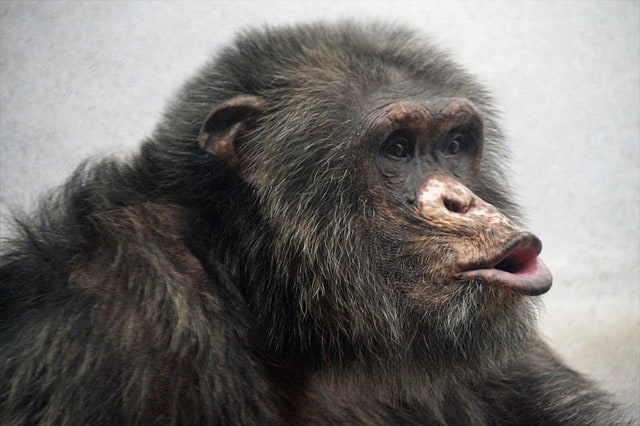
Chimps are known for their intelligence, but they also sweat. Why do they sweat? What does it mean?
Yes, chimpanzees sweat just like humans do. Chimpanzees sweat through their fur, which helps them stay cool when they’re out in the heat. They also sweat through their hands and feet, which helps keep their skin moist.
A chimpanzee sweats a lot when they are nervous, excited, or angry. Sweating helps them cool down, and also helps them regulate their body temperature. If a chimp is sweating too much, it could be a sign of stress, anxiety, or depression.
Chimpanzees sweat for two reasons to cool down when they’re hot and To mark their territory.
When chimpanzees sweat, they leave behind a scent called “pungent body odor” which other chimps recognize as a sign of aggression. This helps them avoid conflict and maintain peace among themselves.
Gorillas
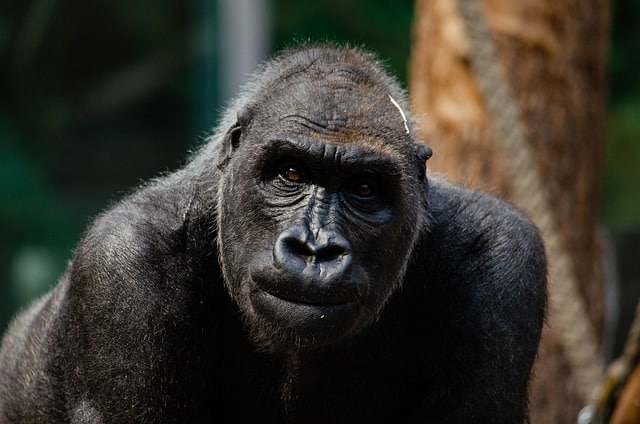
The gorilla has a unique way of cooling itself down. When they feel hot, they rub their hands together, which helps them cool off. They also use their hair to keep themselves cool.
Gorillas do sweat. They sweat through their fur which helps them regulate body temperature. However, gorillas don’t sweat like humans do. Humans sweat by releasing water from the skin into the air via pores.
Gorillas sweat a lot because they live in hot climates. They also need to keep cool during the summer months and stay healthy.
If gorillas do not sweat, they may become dehydrated and lose weight. The sweat evaporates and cools the body down. On the other hand, gorillas sweat through their fur.
Read More : Animals With Tusks !
Do Pigs Sweat?
So, pigs don’t sweat because they don’t have sweat glands. Instead, they rely on their fat to stay cool.
Pigs don’t seem to sweat. They are covered in hair and have a thick layer of fat, which keeps them warm. So, pigs don’t sweat because they don’t have sweat glands. Instead, they rely on their fat to stay cool.
Pigs are omnivores and eat anything from grass to garbage. They also drink water via their snouts. They also have a thick layer of fat under their skin, which helps regulate body temperature.
Which Animals Have Sweat Glands?
Animals with sweat glands include dogs, cats, horses and humans. Sweat glands help regulate body temperature, maintain hydration levels, and lubricate skin.
How much water does our body produce every day? And how much of it goes into our sweat glands?
Our bodies require a certain amount of fluid to function properly. The average person loses between 2 and 3 liters (0.5 to 0.75 gallons) of water each day through breathing, urination, sweating, and other bodily functions.
Our bodies also produce sweat glands that secrete sweat to cool us down. Sweating helps regulate our internal temperature and keeps our skin hydrated.
Which Animals Does Not Sweat?
Whales, dolphins and porpoises are the animals that does not sweat .You probably know that animals don’t sweat, but did you know they also don’t urinate or defecate.
This is because their bodies naturally produce a fluid called urine, which helps them regulate body temperature.
Urine is produced by the kidneys and stored in the bladder until it’s needed. The amount of urine produced depends on several things, such as water intake, salt levels, and hormones. Urine is mostly clear, unless it contains blood.
Animals don’t sweat because their skin has no sweat glands. Instead, they rely on evaporative cooling through panting, drinking water, and moving around.
